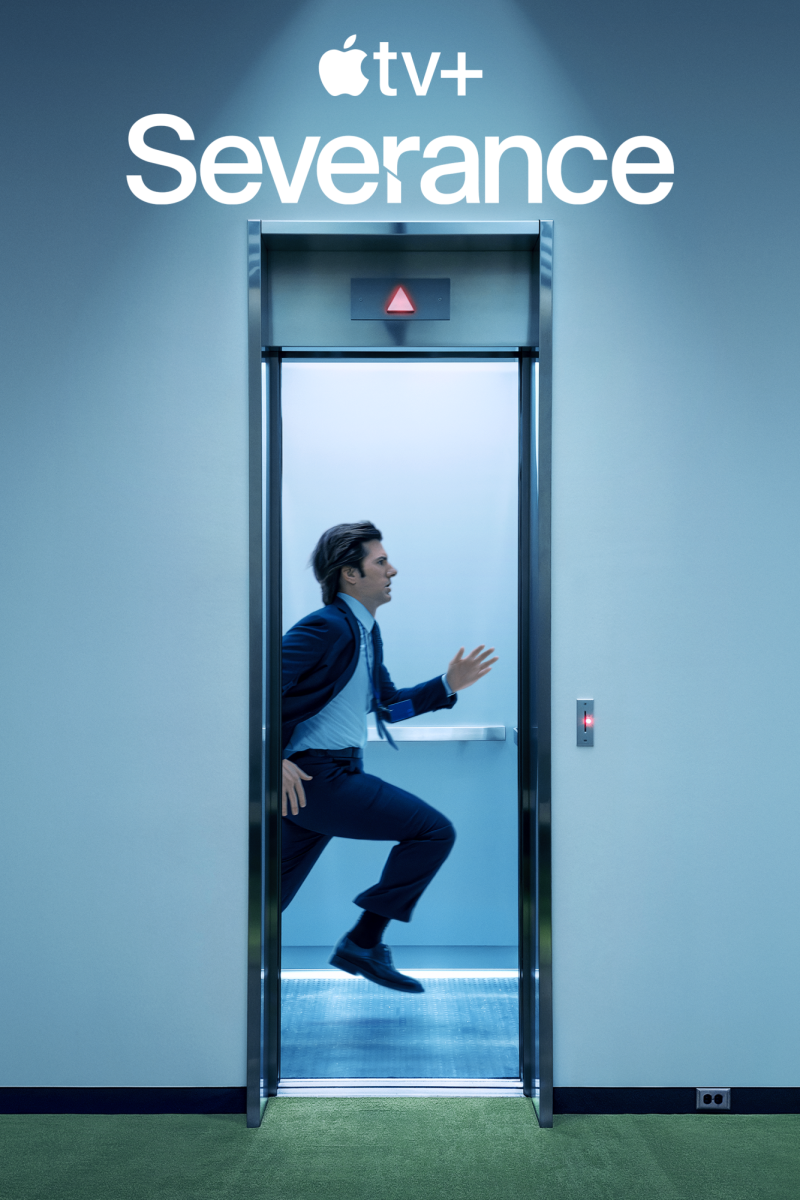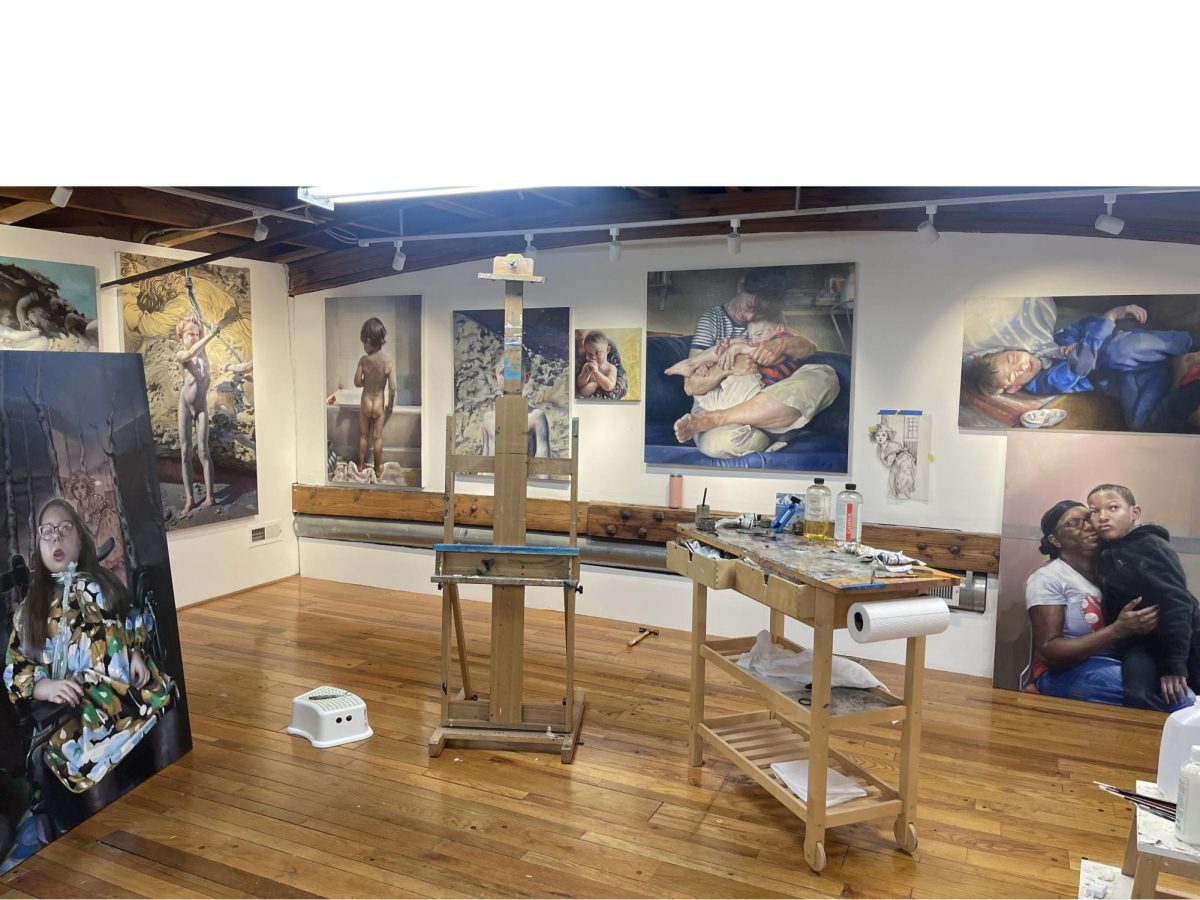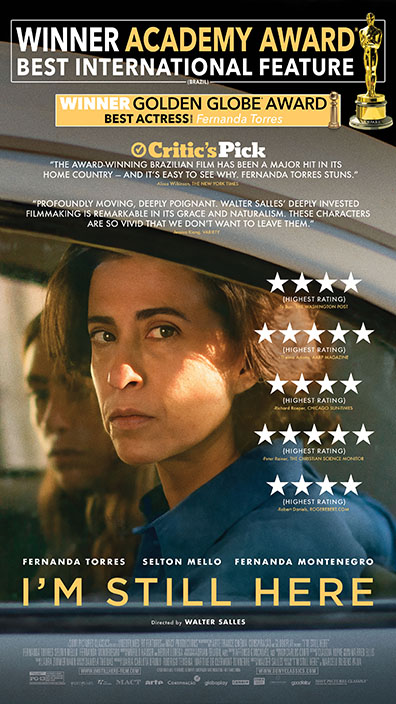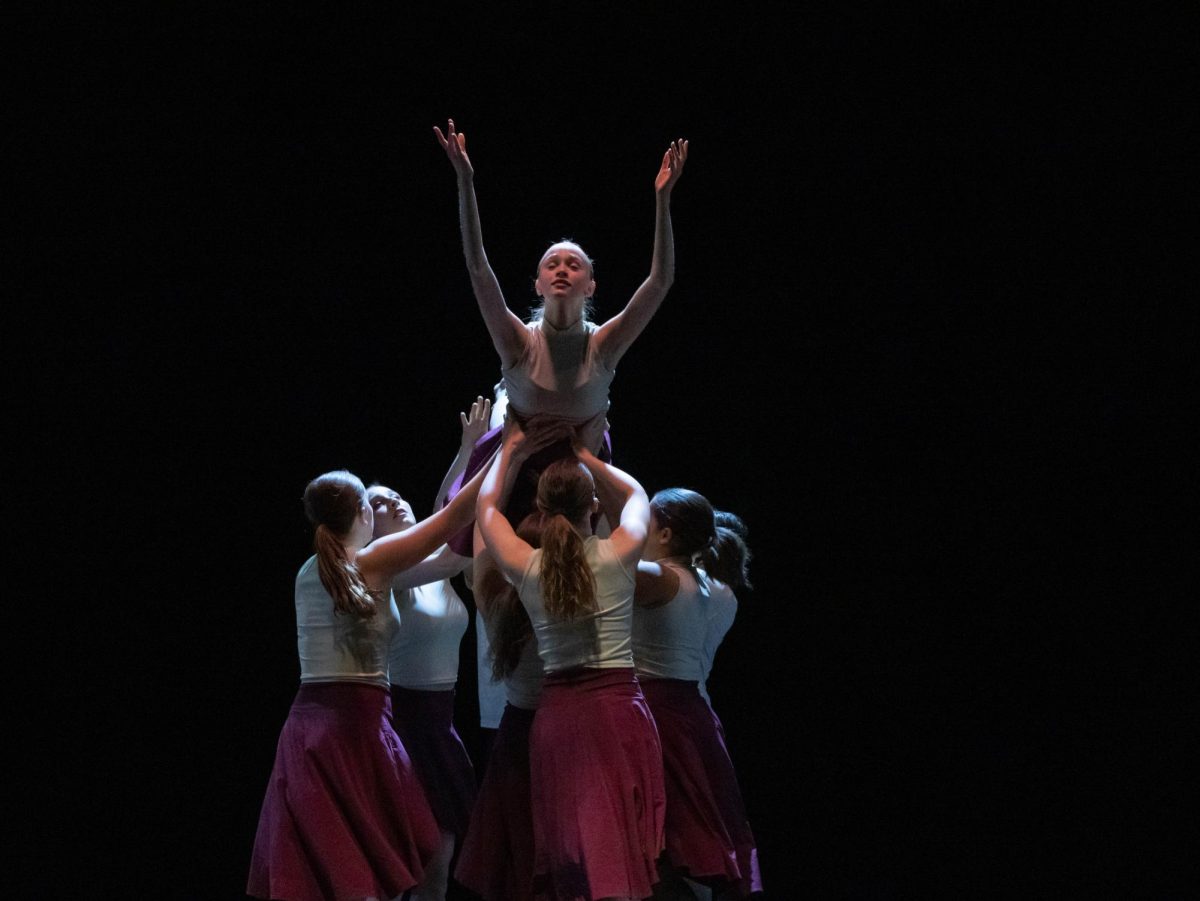This interview has been edited for length and clarity.
There’s no doubt: comedy is bigger than ever. Access is at an all-time high, with hundreds of hours available on YouTube and most streaming services, stand-up specials are produced at an astounding rate (147 in 2023 alone) and audiences flock by the hundreds and thousands every night of the week to see their favorite comedians perform in clubs, theaters and arenas across the country.
It’s up to Jason Zinoman, the comedy critic for the New York Times, to cover it all.
Zinoman got his start in journalism reviewing experimental theater for TimeOut New York before coming to the New York Times as a theater columnist in 2003. In 2011, he became the New York Times’ first comedy critic and began the On Comedy column. Ever since then, he has provided coverage of the rapidly-expanding comedy scene, writing profiles, reviews and essays on some of the industry’s biggest names and brightest up-and-comers.
I had the opportunity to talk to Zinoman about what the role of a comedy journalist entails and about comedy journalism’s importance to the comedy community and to the public.
You started the On Comedy column in 2011. Why do you think the New York Times felt the need for their first comedy column and first comedy critic in 2011?
It’s a good question. The short answer is, ‘I don’t know.’ I don’t know the actual reason. Sometimes it’s like, things happen by accident. It was a moment. I think I’m tempted to make a kind of historical argument that this was the beginning of this current comedy boom, when people like Louis CK were massively popular and increasingly ambitious and getting the attention of people who would normally not pay attention to stand-up comedians. But I don’t think that’s why the column was started. I think the truth is, they should have been doing this a long time ago. Stand up comedy is this incredibly fertile art form. It is a great prism into not just comedy, but politics, but also the life of the city. We were covering Broadway and theater and opera and dance with both reporters and critics in a lot of detail, but we weren’t doing that for the Comedy Cellar or Caroline’s or UCB. So I think it was a necessity. And there were major artists like Jerry Seinfeld or Chris Rock who we would get to when they got a TV show, but they were performing in New York for a long time before that, and we weren’t writing about them then with the same level of thoroughness and rigor that we were for other artists. So I think it was more like it was a long time coming.
What differences are there covering comedians versus covering theater?
Well, that’s a question I’m uniquely well-positioned to answer. The differences are, theater is very local and ephemeral, and comedy is both local and ephemeral and global and permanent. And so, as a consequence, comedy is much healthier than theater right now because in the digital age it translates to the internet much, much better than theater does, and so it has much more cultural capital. Netflix can do things with it that are trickier to do with theater.
When I started, actually, I thought they were quite similar because they’re both live art forms. But comedy has managed to grow a lot more and is popular around the world. A Chris Rock special is popular around the world and has much more cultural impact than a play.
There’s also just a million little differences between the two types of artists that I’ve found. It’s funny. In some ways, I had more power as a theater critic than I do as a comedy critic because in theater a bad review can really hurt a show, like an Off-Broadway show, in ticket sales but a bad review of Jerry Seinfeld is not going to hurt his sales. There’s still a lot of responsibility in writing about anybody for the paper, but weirdly I find the relationship between artists and people who write about them a little healthier in comedy than in theater.
Do you think it’s because you don’t have that power to hurt a comedian’s ticket sales?
Part of it is that the power is seen a little clearer. In comedy, people of course get pissed at the press. People get pissed at me when I write something negative about them. That happens. People’s feelings get hurt; I do have an impact in the comedy sphere. But I also think that comedians have thicker skins, generally speaking, because part of their job is to go in front of audiences and listen to the audience. If they don’t laugh, they don’t repeat that joke. If they do laugh, they keep it going. And the comedians who don’t listen to their audiences tend not to do as well. I think in theater, you’re more likely to find people who pay less attention to the audience, whereas in comedy, you’re more likely to find people who pay too much attention to the audience. That’s an important distinction.
Who do you think primarily reads your articles? Is it mostly hardcore comedy fans, or do you think they reach a broader range of people?
It’s a broader range of people. That’s where I listen to my audience. I don’t focus on who’s reading what every second, just like comedians shouldn’t obsess over that, but I’m aware of what gets read and who reads it. Writing for the New York Times means that you’re writing for a broad audience. You’re writing for grandparents and kids; you’re writing for people of different political persuasions; but most importantly, you’re writing for people who are both obsessed with comedy and know every detail of it, both artists and fans, and you’re writing for people who aren’t that obsessed about it but are kind of curious and want to read about it. There are people who know what an act-out is, and there are people who don’t know what an act-out is. The fundamental challenge of my job, as opposed to someone writing for a smaller website that has a more specialized audience, is an act of translation. I want to write for that specialized audience. I don’t want to dumb my stuff down so that those people won’t appreciate it. But I also, equally important, want to make it accessible to some grandmother in Peoria who has been to a comedy club twice in her life and doesn’t want to be confused by jargon or a bunch of references that she doesn’t get. That’s actually the hardest part of the job that people don’t understand. There’s a lot of people out there that understand comedy; there’s some people out there who can write about it. But to do that act of translation, to be accessible without dumbing it down, is really, really hard.
With your large audience, do you think that gives you a platform to elevate some of the people that you write about, some of the lesser known names?
I think that’s one of the important things that I should be doing, and sometimes I worry that I’m not doing it enough. I try to strike a balance because of course, part of the job is covering the big names, and that’s what my editors are curious about. Like, if Chris Rock has a special, they want that covered. I know that. But I think one of the important responsibilities of this job is to elevate emerging talent, people doing work in corners that are being ignored, or to make connections between obscure ideas and more mainstream ideas.
As the years have gone on, comedy has gotten more and more online. I used to be like, “I gotta go to the comedy clubs this number of times a week.” And I still go out and see live comedy constantly, but now I have to also be on Instagram and Tiktok and keep an eye on YouTube specials. It’s just a sprawling world. I didn’t just start writing about theater, I started writing about downtown experimental theater, small theater that got ignored. I took a lot of pride in writing about this stuff that was way outside of the mainstream, and it was this same kind of translation – explaining to an audience that might be a little bit hesitant to embrace this stuff or think of it as weird and trying to introduce them to it. With comedy, I try to write about the big mainstream stuff, and the off-kilter stuff. I try to write about character comedy, sketch, improv, weird off-the-beaten-path stuff.
I do think that’s a big part of the job, and increasingly it gets harder and harder to do. Because of the internet, we all know how every story does in terms of readership. And as a general matter, if you’re writing about big celebrities, it does well. So the stuff that you’re writing about unknowns is not going to do as well in terms of traffic. But it pays off long term, I find, because one of the things about covering the comedy beat is you can write about people early in their careers and see how their career progresses. Also, you’re writing about them when it really matters. That’s the part of the job I really enjoy.
A similar thing happened to me. I went to see Jerry Seinfeld and Jim Gaffigan at the United Center, and I wrote a story about it, and I put their names in the title of the story. That was in November, and it’s still the number one trending story on our website, just because it has their names in the title. So it’s like, people just want to read about these big names.
Completely. So what do you do about that? How did that make you feel?
Well, I was excited because a lot of people were reading my story, but it wasn’t the best story I’ve written. I wrote it pretty quickly because I wanted to get it out, and it wasn’t like I was writing about this event that other people could go to, because it had already happened. And then I wrote this other story about this local show with stand-up comedians that are in Chicago that are not at all known, and that didn’t get as many reads, but, like you were saying, it’s more important for people to write about them than it is to write about Seinfeld and Gaffigan.
It’s human to feel like, “I want my story to be read too.” It feels good when you’re at the top of the list of most read stories, but it’s not more important than reading about those Chicago artists. In fact, that is more important. You’re right. But then psychologically, how do you justify that when you feel good? And if you’re doing this as a job, your boss is gonna be like, “Great for getting this in.” You have to have your own sense of pride over those local stories.
I just wrote about this book on Chicago alternative comedy in the late ’90s and the aughts–
Is it called “The Perfect Amount of Wrong?”
Exactly.
I want to read that so badly!
You should definitely read it. I found it really inspiring for a couple reasons. I went to school in Chicago, and I have family from Chicago, and the book leans on all these local Chicago writers for the Trib and the Sun Times, including people who I’d never heard of, who wrote about local comedians and local shows. And you realize, the people who did that work are doing invaluable work for history. They are chronicling something that not only is helping someone’s career short-term, that’s part of it, but you’re really writing for something bigger; you’re writing for history when you’re doing those kinds of things. And that book is the kind of thing where it pays off because you had all these great artists who came out of that scene, and you wonder, “What was that scene like?” and now we know because people did the hard work that was probably ignored when it came out. Nobody cares what the people in the Tribune said about Jerry Seinfeld in the late ‘90s. There were a million people writing about Jerry Seinfeld. It wasn’t adding much to journalism to do that. But they really did add something in journalism when they wrote about Pete Holmes back then or Hannibal Buress. They were the first to write about them, and they’ll always be the first people to write about them. And so when you’re writing about these people in the story about the local show, you’ll be the first one. There’s somebody who’ll write a book about the Chicago stand-up scene now in 30 years, and they’ll quote you, and you’ll be in the footnotes. I think it’s important for journalists to figure out a way to take as much pride in that, or more pride in that, than to getting a lot of hits for putting a celebrity in the title. And I don’t say that condescendingly; that’s harder than it seems.
You’ve mentioned how important it is for comedians to see themselves being written about. What kind of feedback do you receive from smaller comedians who you’ve written about?
I receive a ton of feedback. It definitely matters more from comedians than from theater people. Maybe it’s because comedians usually don’t have a filter. And they have less publicists weirdly, although they’re getting more of them. But no, people are grateful to be written about. Maybe they have some success, but to their family they don’t seem like they have a real job, and then when they’re in the New York Times, their parents might think, “Oh, okay, it’s a real job.” Then, there’s people who you’ve been covering for 15, 20 years, and you can track their progress, and those people are like, “Someone’s paying attention and noticing that I’m getting better at this, or this is a flaw I have.”
Sometimes, of course, people hate what I write, and I get angry feedback. I’ve been cursed out. I’ve had some of the biggest names in comedy go after me. That’s all part of the job. Because I come from theater, where, as I said, in some ways criticism matters more, I know that you have to take it all with a grain of salt. You can’t be too happy about someone thanking you for giving a good review or be too sad about somebody being angry about it. It’s a human thing for someone to be upset about a negative thing. And you have to listen. That’s also the challenge. Just like I believe that criticism helps the form, I believe that people offering critical feedback of my work can be useful, although you have to sort of sift through the emotional stuff from the useless stuff.
When I started my career, before everyone was on the internet, there was this sense among artists that, “You don’t know what it’s like to get negative feedback. It’s really horrible,” but now everyone knows what it’s like to get negative feedback. You know what it’s like, I’m sure, to get negative feedback. If you post something on Instagram, or you post something on Tik Tok, someone’s gonna say something mean. That is a skill that we all now know, which used to be something that just public figures would know. So a big part of the job now versus 20 years ago, is figuring out how to handle that – how to listen without changing your principles or what you’re trying to accomplish and making sure that you’re taking in helpful feedback but being brutally honest when you need to be. Part of the job is being honest about your opinions, and inevitably, that’s going to inspire a range of feedback, and that’s a good thing.
Last fall, The New Yorker put out that story about stand-up comedian Hasan Minhaj and how he was telling these made-up stories on stage to create fake emotional truths. It seemed to illustrate another role of comedy journalists, which is to hold comedians accountable, to make sure they’re not sinking to easy jokes or fake emotions. How do you think you fill this role, and what other roles do you have as a comedy journalist?
That was a good example of one where I did feel like I could be useful because the New Yorker fact checked this comedian, and it was an interesting story, but it didn’t have a lot of comedy context. As I said in the piece, it was a bit prosecutorial. And of course, the relationship between truth and fiction is specific in journalism, and journalism is one set of rules, but comedy has another set of rules, and it’s a little bit in flux. Because you have things like “The Daily Show,” which is trafficking in real things, and people look to it as the news, but it is also comedy. So it’s actually a really interesting subject, one that I’ve covered a lot over the last 20 years, and I’ve covered a lot of artists who are using the tools of journalism to make art and comedy. So my response to the New Yorker story was one where I thought I could sort of educate the public a bit on what comedians do. Comedians make stuff up all time, but that doesn’t mean that they can make anything up and wait without judgment. My piece is trying to say, “Here’s the context; the world’s changing in this way; the rules on this are shifting under our feet and here’s how I think we should think about them.” That piece was controversial, but I was very proud of it. It started a lot of conversations. I fleshed out that debate.
That’s part of my job, to deal with these kinds of ideas. And increasingly that’s what editors want. There’s also reviews; there’s profiles; there’s responding to the news on something; there’s idea arguments and then there’s essays on current issues. One fantastic thing about covering comedy, as opposed to every other art form, is comedians are more entrepreneurial than any other artists, and they’re quicker to respond to the world as it is now. So they’re going to be the first ones to talk about artificial intelligence and its effect on the world. They’re going to get there before filmmakers, before playwrights. I wrote a big essay on the threat of AI to original art, and if it’s exaggerated or not. I wrote an essay on the question of comedy’s role in politics; I’m sure I’ll write about it a lot during the election. It’s cheap and easy for a comedian to cover current events. Something happens in the news; you go that night to the club; you talk about it and you can release it very quickly.
I also write essays about some things that are a little bit lighter, like with Matt Rife. I was like, “How do I want to write about him?” I could have done a conventional review, and some people did, and I think that’s important. He should get some conventional reviews. But I didn’t think his work was interesting enough to merit that kind of review. What I thought was most interesting was that he was not only an incredibly hot guy, but he leaned into that. Historically, the sense has been that being a comedian was one of these few jobs where there isn’t this privilege for being attractive. If anything, you hid the fact that you are attractive. Phyllis Diller would dress up in a way that hid her good looks. So I use that as an essay about the relationship between humor and attractiveness, and if comedy increasingly being on screens and right up against your face is making attractiveness more prized than it used to be. So that ended up being not a review, not a profile, but an idea piece that used Matt Rife as the hook. That’s another thing I can do that’s useful.
What do you think makes a comedian or a special worth writing about?
Look, every special is worth writing about. The problem is I have a limited amount of space and time, so I have to make hard choices. Some of it is as simple as a person is newsworthy; they’re famous; they have a big body of work. There’s a certain class of comedians we’re just always going to cover. But then, there’s sort of mid-career people, and I try to cover them as much as possible – people who are doing ambitious work, doing interesting work. And then there’s the people who are starting out and, generally speaking, I’m not gonna write about some unknown and pan them. I try to write about people who are newsworthy, talented, ambitious. The truth is, I used to probably do more reviews, and now I increasingly work people into these different forms. Like, I did a big Taylor Tomlinson profile. I won’t review her Netflix special because I already covered it in the profile. So I struggle with this because I think of myself as a critic who wants to cover everything, but there’s so much content out there, it’s impossible.
The comedy world is huge, and it’s only growing. How do you keep up with what’s happening?
It’s hard. I’m a bit obsessive about this even though I think it matters less and less to be on top of every single young comic, but I try to be. I go to clubs several times a week. I go to see new shows. After a certain point in time you get to know a lot of the major clubs in New York, and I spent more and more time over the last year online watching people, watching specials. There’s just so many specials on YouTube. And then, you have to know your own blind spots. I know New York a lot better than I know Chicago or LA, so if people from Chicago are coming to Brooklyn I’ll go out of my way to go see them. I’m going to LA in a couple months. I’ll try to see a lot of comics there. I’ll search out more comics from other places, Austin, etc., that I know I have trouble seeing in person. You’ve got to hustle and constantly go out and see as many people as possible.
Some people think that in the last 20 years journalism has shifted to everyone talking about the same handful of things at the same time. Like right now it’s the Super Bowl, and in two weeks it’ll be the Oscars. It kind of makes the cultural conversation a little boring. There’s all sorts of great work that’s being under-covered, and the smartest thing is to go to those places that people aren’t covering. In New York, and Chicago I’m sure, there’s the big clubs, but there’s also the smaller alternative spaces. Spend a lot of time there. That’s where you find interesting, unorthodox stuff.
The last piece is this: there’s some people who are critics and some people who are reporters, and since I started I’ve always done both, which can bring up some problems. You have to have certain lines you don’t cross. But I find being a reporter helpful in finding new talent. I’ll always be like, “Who should I see? Who’s someone doing something new?” or “What’s an interesting story that I don’t know about?” And I find a lot of ideas like that through reporting.
You go to clubs all the time. Are you a known person in the New York comedy scene?
I think that’s fair to say. Yeah.









